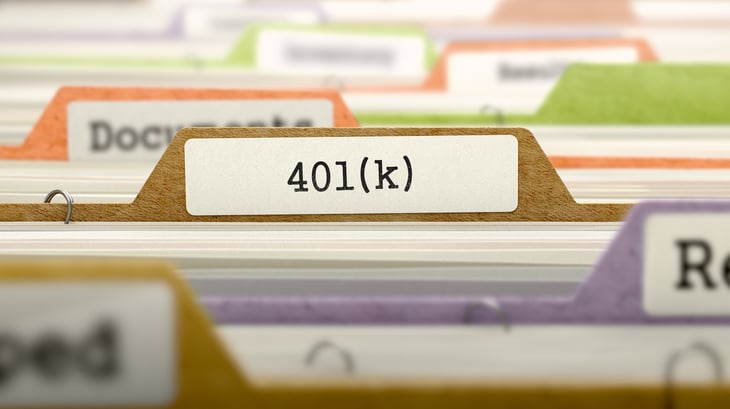
Thinking about the future isn’t top-of-mind for everyone. With stubbornly high inflation and a looming potential recession, many of us are trying to figure out how to take care of ourselves and our families right now. This leaves retirement planning to fall down the list.
According to a recent survey from financial services company Charles Schwab, nearly two-thirds of the 1,000 participants said inflation was the biggest obstacle holding them back from a comfortable retirement. The survey participants were all workers between the ages of 21 and 70 who had 401(k) plans.
Here’s a look at where Americans would want help with their retirement planning if they could get such help.
10. Managing debt

Respondents who want help with this aspect of retirement planning: 20%
Carrying debt can be one of the most significant setbacks to saving for the future. After all, your debt needs your attention right now; retirement won’t be here until later. Getting help managing debt will not only help you pay it off but also encourage you to save for your future self.
8. Figuring out how to catch up on my retirement savings goal (tie)

Respondents who want help with this aspect of retirement planning: 25%
Your retirement savings goals depend on a few factors, including your age, how much you have saved, other income streams (like investments), and when you want to retire. Since everyone’s goals are different, it can get a little confusing trying to figure it out.
There’s no one right way to retire, just as long as you have the goals and plan in place to get there.
If you’re struggling with this, start by checking out “7 Fast Ways to Catch Up on Retirement Savings.”
8. Managing my current expenses so I can save more (tie)

Respondents who want help with this aspect of retirement planning: 25%
One quarter of the Charles Schwab survey participants are worried about how their current spending will affect their long-term plans. Retirement can feel like it’s a long way away, but if you’re too caught up in the now, it’s difficult to plan for later.
7. Figuring out how new legislation affects my retirement plan

Respondents who want help with this aspect of retirement planning: 30%
One of the built-in risks of planning for a far-off event — retirement, in this case — is that lots of things could happen between now and then.
Congress could change taxes. Social Security could run out of money. (That’s not as dire as it sounds, as we explain in “Here’s What Will Happen When Social Security and Medicare Funds Run Dry.”) Or it could tinker with the rules surrounding saving for retirement, as the Secure 2.0 Act of 2022 did.
Staying on top of these changes is extra work and planning. We explain the Secure 2.0 Act here:
- “10 Ways the New Retirement Law Helps Savers of All Ages”
- “How the Secure Act Could Make or Break Your Retirement Savings”
6. Anticipating tax expenses in retirement

Respondents who want help with this aspect of retirement planning: 33%
How you’re taxed on your retirement income can have a huge impact on your retirement planning. For instance, if you’ve got a traditional IRA, you’ll get taxed on your withdrawals, including both the principal and earnings. This goes for other tax-deferred accounts, including traditional 401(k) plans, too.
You might also be on the hook for taxes on Social Security benefits, which could vary by person. If you aren’t sure what you’re responsible for, you might not save enough for taxes during retirement.
To learn what you might be able to do now in order to minimize your tax bill later, check out “7 Ways Retirees Can Lower Their Income Taxes.”
5. Figuring out what my expenses will be in retirement

Respondents who want help with this aspect of retirement planning: 34%
Your current self and your future self aren’t necessarily on the same budget. For instance, you might be making mortgage and car payments right now, but in a few years, those things could be paid off.
Retirement expenses vary by person, location, budget, and a slew of other personal needs and wants. For instance, some need long-term home health care while others are paying off a mortgage.
To get an idea of what you might be facing, check out “11 Huge Retirement Costs That Are Often Overlooked” and “7 Major Expenses That Shrink When You Retire.”
4. Figuring out how to create an income stream in retirement

Respondents who want help with this aspect of retirement planning: 36%
A lot of new retirees who stop working for their current employer don’t necessarily want to stop working entirely. Some people want to maintain some sort of income in retirement, even if it’s not at the same capacity.
Retirees have a lot of ways to earn money. For example, you can offer your longstanding expertise as a consultant or contractor. You can even start a business of your own or work as a freelancer whenever you want.
3. Determining at what age I can afford to retire

Respondents who want help with this aspect of retirement planning: 38%
There’s no minimum retirement age. As long as you have enough money, you can stop working whenever you see fit.
But if you don’t have enough saved, you might need to delay retirement longer than you expected.
2. Receiving specific advice on how to invest my 401(k)

Respondents who want help with this aspect of retirement planning: 40%
There’s a lot of talk about contributing to retirement accounts, but then what? If you aren’t sure how to manage your work-sponsored 401(k), individual retirement account (IRA) or other investment accounts, you might not be maximizing your returns.
Just like retirement goals and needs are different, investing advice should be tailored to your situation.
1. Calculating how much money I need to save for retirement

Respondents who want help with this aspect of retirement planning: 41%
While there are lots of baseline numbers for how much you need to have for retirement, the truth is, it’s different for everyone. Where you plan to retire, your expenses and your health play big factors in that amount.
Because of this, it’s not always easy to figure out the big number you need to have saved and how to break that down to determine how much you need to save every year until you retire.




Add a Comment
Our Policy: We welcome relevant and respectful comments in order to foster healthy and informative discussions. All other comments may be removed. Comments with links are automatically held for moderation.